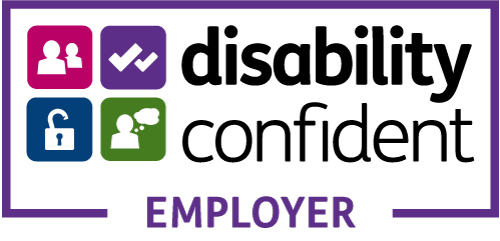
Many disabled students and graduates ask the Careers Service for help making the transition from study to work. We support students with a variety of physical, mental health, and neurodiverse conditions such as dyslexia, autism and ADHD when thinking about their career. In this blog post we’ll go over some of the common questions we get asked around the recruitment process, what we can do to help, and where you can get extra support.
Common questions include:
- Should I disclose my condition and if so, when or how?
- How can I find an employer who is genuinely committed to equality and diversity?
- How can I prepare myself for an interview or assessment centre?
- How can I demonstrate my skills and compete in a challenging jobs market?
- What are my employment rights?
- What are the reasonable adjustments I can expect?
Adjustments to the application, interview and selection process
The commonly used term “reasonable adjustments” is there to protect you – the applicant – and provided they are requested within a good time frame, they should be granted to the employer. When preparing for an interview, consider talking to the employer in advance about your needs, to ensure you are able to perform at your best. Common examples include:
- Requesting more time for an assessment.
- Requesting a different location or format for an interview.
- Removing or adapting an aspect of the process which is not fully accessible.
- Providing information or instructions in a different format in order that it is more accessible.
Where to get help and advice
Your Careers Service is here to help. We know that everyone is different and that’s why we treat you as an individual. If you would like to talk through any questions around your career planning, ask a question to request a one-to-one telephone or skype appointment for expert advice from an impartial careers adviser. You can also search for talks and events with an equality and diversity focus on mycareer.
EmployAbility is an organisation that aims to support, advise and advocate on behalf of talented neurodiverse and disabled university students and graduates, throughout the entire recruitment process.
Here’s how EmployAbility helped a Bristol student:
“I sought help with EmployAbility because I was daunted by the fact that so many employers automate and standardise their recruitment process. EmployAbility provide personal support with applications, and really help you to highlight your strengths. Their website is great for organising your applications, which makes the process much smoother. My advice for navigating the employment process is to ask your friends to help you, e.g. with proof reading or practising presentations for interviews.”
EmployAbility also runs internships, graduate and first-year programmes with disability-inclusive partners and have supported more than 13,000 students into employment. Have a look at their ‘Next Generation Webinar Series’ and visit the EmployAbility website here.
There are many other organisations that offer a wealth of practical advice and guidance to support disabled students throughout their time at university and into a graduate career. You can find links to more of these on page 3 of our ‘Equality and Diversity matters’ document on mycareer.
MyPlus Students’ Club provides advice and support to students with disabilities to help navigate the recruitment process and achieve their career potential. Register with MyPlus Students’ Club here.
Change 100 is a programme of internships for talented students and graduates with disabilities or long-term health conditions to gain the experience, confidence, networks and skills needed to kick start their careers. Visit Change 100’s website here.
Disability confident employers
Look out for the ‘Disability Confident’ badge on some employers’ websites. This badge is part of a government-initiated scheme designed to help employers recruit and get the best out of disabled employees and applicants, so you can be confident about their commitment to supporting you.
Find out more about disability confident employers here.

Your rights – your choice
You are entitled to privacy and have the right to exercise choice. This is reflected in the Equality Act 2010, which prohibits an employer from asking any questions about disability or health during the recruitment process. They can only ask you about the adjustments required to do the job. You are not required to disclose your underlying disability – it’s your choice.
Many employers do ask about disability on a separate monitoring form though which helps the organisation monitor their own equality and diversity practices.
Finally, remember that your Careers Service is here to support you wherever you are in the world, right now, and for 3 years after you graduate.
